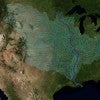
Department of Energy unveils geothermal ‘Earthshot’ at Ion
Secretary of Energy Jennifer Granholm, at the Ion, announces the government’s latest “Earthshot” initiative on enhanced geothermal energy.

Department of Energy unveils geothermal ‘Earthshot’ at Ion
Secretary of Energy Jennifer Granholm, at the Ion, announces the government’s latest “Earthshot” initiative on enhanced geothermal energy.

People, papers and presentations for Sept. 6, 2022
Melodie French, an assistant professor of Earth, environmental and planetary sciences, has won the 2022 American Geophysical Union (AGU) Mineral and Rock Physics Early Career Award.

Rice experts available to discuss 5th anniversary of Harvey
As the fifth anniversary of Hurricane Harvey approaches, Rice University experts are available to discuss the storm’s ongoing impact.

Science atop an active volcano
A Rice graduate student’s video and blog show what it’s like to conduct research atop an active volcano.

Most but not all Texas coaches say they’ll plan for climate change
A survey of Texas college and high school coaches, trainers and athletic directors suggests many are not taking climate change into account as they plan their programs’ futures.

Study: Explosive volcanic eruption produced rare mineral on Mars
Rice, NASA and Caltech scientists have solved a mystery that began with a 2016 discovery by Mars rover Curiosity.

Houston birdwatcher turned to listening in the pandemic
A Rice geologist’s birding hobby branched out into citizen science during the pandemic.

Rice University geobiologist tapped for Antarctic drilling mission
Rice geobiologist Jeanine Ash is participating in an Antarctic mission that’s studying climate change.

NSF backs study of Mississippi River’s response to climate change
Rice climate scientists and engineers are studying how climate change will impact Mississippi River flooding.

US News grad school rankings give high marks to Rice programs
A total of 19 graduate programs at Rice University rank among the nation's top 25 in their categories in the latest edition of U.S. News and World Report’s “Best Graduate Schools.”

Ancient El Niño behavior reveals limits to future climate projections
Study finds more research is needed to determine how climate change may impact El Niño.

Voyage reveals wonder and beauty of ‘long-dead ocean dwellers’
Rice Ph.D. student Debadrita Jana is part of a scientific voyage exploring deep beneath the Indian Ocean.

Environmental champions win Rice grants
The Rice University Sustainable Futures Fund backs six projects to help bolster the planet’s environmental health.

Black and Hispanic communities bore disproportionate share of Texas’ early COVID-19 deaths
Texas state officials did not publish the race and ages of COVID-19 victims in early 2020, but a county-level statistical analysis spearheaded by Rice University undergraduates in collaboration with university faculty has found deaths statewide were disproportionately concentrated in Black and Hispanic communities.

Data from beneath the South Atlantic Ocean
Rice graduate student Kevin Gaastra is in the South Atlantic Ocean this week, working to process and inspect samples on the scientific drill ship JOIDES Resolution.